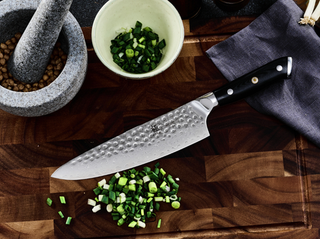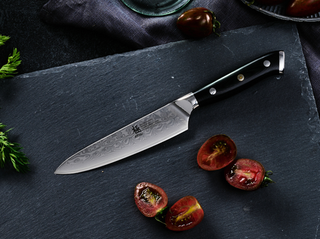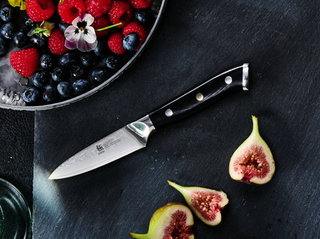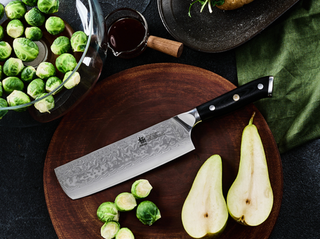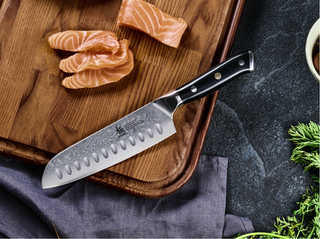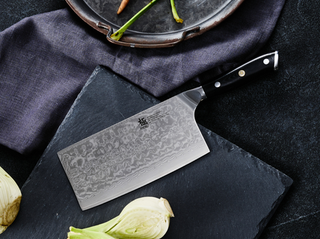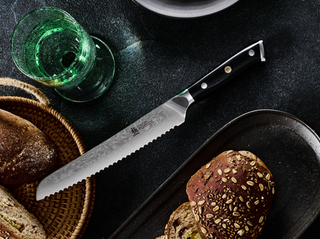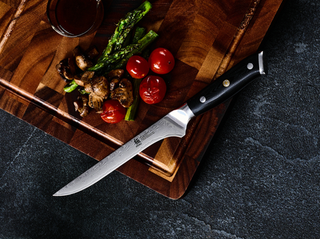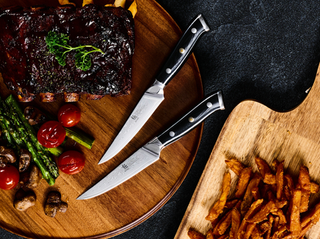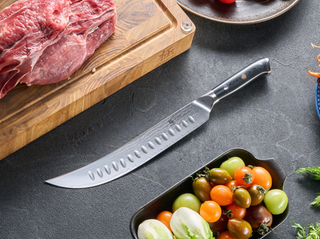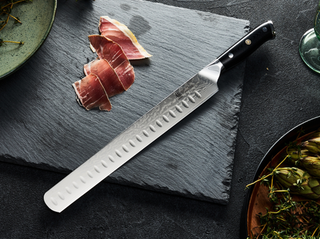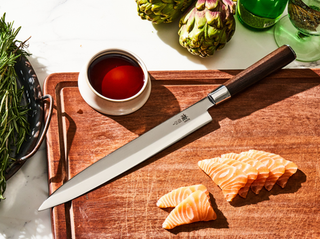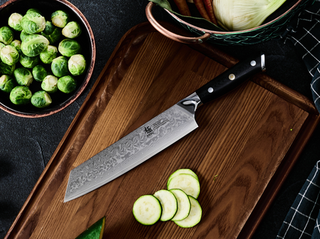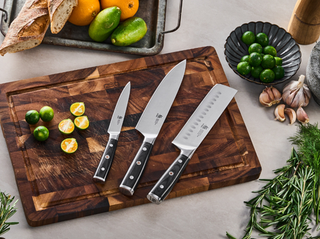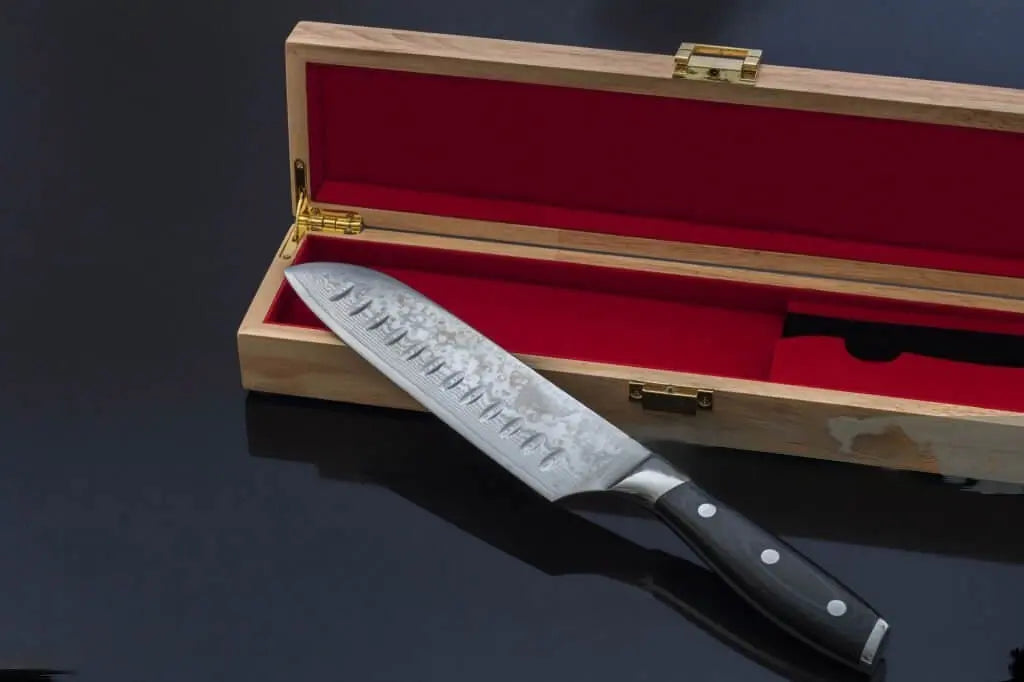The Ancient Custom of Knife Gifting
A knife is a memorable and useful gift. Moreover, it has symbolic meaning, demonstrating your appreciation for the recipient.
People have seen knives as powerful items, whether as weapons or valuables. In the past, having a knife meant having authority or power, like government officials or the head of a household. Essentially, a knife connotes power and respect.
Today, there are various types of good knives available. These include kitchen knives, pocket knives, survival knives, hunting knives, high-end chef's knives, and collectible art knives. Adding engravings or decorations can make a knife unique, turning it into a personalized present.
A quality knife will make an excellent gift suitable for various audiences: outdoor enthusiasts, cooking aficionados, hunters, survivalists, or antique memorabilia collectors. You can show off a cool knife on different occasions. These occasions include birthdays, anniversaries, Black Friday, Christmas, work promotions, hunting trips, or meetings with important people.
However, many people still have concerns about giving knives as gifts. This article will introduce to you the superstitions about giving knives, the meaning of giving knives, precautions, etc. You can refer to this article when you want to give knives as a gift.

Knife Gift Superstition
The superstition about giving knives originates from old legends in many Western and European cultures. A common traditional belief was that a knife represented a severed relationship or the cutting of ties between people. Because of this, there was a practice of gifting a knife along with a penny. People believed that using a penny turned the gift into a simple transaction instead of a malicious present.
Adding the penny is to prevent people from thinking the knife meant the end of a relationship or something bad. In the past, people gave knives for a penny to avoid superstitions about giving blades. It may seem strange now. People saw the penny as a token that could deter any potential curses or bad luck believed to come from gifting a knife alone.

The Symbolism of Giving a Knife as a Gift
Knives can hold many symbolic meanings, which is why the act of gifting them has been ritually significant across cultures. Here are some of the key symbolic messages that may be conveyed when gifting someone a knife:
Trust: Giving a knife can signify that the giver trusts the recipient with a potentially dangerous tool. It demonstrates faith in their responsibility and character.
Protection: A knife represents the ability to defend oneself and overcome life's challenges. Gifting a knife can suggest the giver wants to provide protection.
Independence: As a tool that provides utility and self-sufficiency, a knife given as a gift can indicate that the giver sees the recipient as capable and independent.
Connection: In certain cultures, the ritual exchange of knives solidifies social bonds. The shared knife signifies a relationship's strength and closeness.
Masculinity: Knives are associated with masculine energy in many traditions. Gifting a knife may recognize the recipient's strength or transition into manhood.
Severing Ties: Historically, many have associated a gifted knife with the severing of relationships or the ending of life. This context gave knives ominous symbolism.
When giving a knife as a present, consider what symbolic message you wish to convey based on the knife's meaning in your culture and the nature of your relationship with the recipient. Make sure your intentions with the gift are clear to avoid any misinterpretation based on knife folklore and superstitions.
Is It Bad Luck to Gift a Knife?
Despite long-held superstitions, giving knives does not necessarily need to be taboo in every case. The meaning behind the gift depends heavily on the relationship between the giver and the recipient.
Here are some occasions when gifting a knife is generally considered appropriate:
- The recipient frequently uses knives for work, a hobby, or survival needs. A high-quality, personal knife can be a thoughtful gift.
- You have a very close family bond or friendship with the recipient. The knife holds purely symbolic meaning.
- The knife has cultural or religious significance as a traditional gift in your heritage.
- You wish to present a knife as a ceremonial display piece rather than a functional tool.

As long as both parties understand and appreciate the intended meaning behind the knife, it can still make a suitable gift in the right circumstances. However, exercise caution when presenting knives in any professional, polite acquaintance, or new relationship context.
Overall, most modern gift-givers do not need to be overly concerned about knives bringing bad luck. If the knife matches the recipient's interests and needs, it often makes for a memorable and valued gift. However, it is wise to consider the individual's cultural background and personal beliefs when selecting a knife as a gift.
Safety Tips When Giving a Knife as a Gift
While knives can make great gifts, it is important to keep safety in mind when presenting them to avoid potential accidents.Here are some tips:
- Choose an appropriate knife for the recipient based on their experience level. Avoid extremely sharp or tactical knives for novice users.
- Secure the knife properly for gifting. Use a sheath or securely wrapped box rather than handing over an exposed blade.
- Include safety information about proper knife handling and maintenance. You can provide safety guidelines or point them to instructional resources.
- Advise careful storage like sheaths, cases, blocks, or magnet strips to reduce accidents around the home.
- Recommend wearing cut-resistant gloves when using very sharp knives to protect your hands.
- Suggest starting with softer materials like vegetables or wood carving before tasks requiring more force or leverage.
- Encourage attentive, sober handling whenever using the knife to prevent slips or mistakes.
- With some basic safety considerations, you can ensure your knife gift provides years of practical use while minimizing the risk of harm. The recipient will appreciate learning how to properly wield their new blade.
Best Recommendations for Knives as Gifts
Selecting the perfect knife as a gift can be a delightful experience, especially when you have high-quality options. Here are the top recommendations for knives to consider:
1. Best Gift For Home Cooks: The Chef Knife
The Chef Knife is an excellent choice for any home cook who takes their culinary pursuits seriously. If you want to make your home chef's eyes light up, give them an 8" Gyuto Chef Knife. This 8" chef knife of the Shogun series was made of VG10 Damascus steel, known for its sharpness, edge retention, and striking patterns. It's versatile enough to handle various kitchen tasks, from slicing vegetables to carving meats. The ergonomic handle also ensures comfortable use, making it a fantastic gift for home cooks.
2. Best Gift For Anglers or Seafood Enthusiasts: The Santoku Knife
The Santoku Knife is ideal for anglers or seafood enthusiasts. Its shorter and wider blade is suitable for delicate tasks such as fileting fish and slicing sushi. This 7" Santoku knife was also made of Damascus steel, which not only offers superior cutting performance but also adds a beautiful aesthetic touch. Besides, it is a hollow-edge Santoku knife, better for avoiding food sticking to the blade.
3. Best Gift For Vegetable Lovers: The Nakiri Knife
Vegetable lovers will adore the Nakiri Knife. Its straight edge and flat blade make it ideal for chopping and slicing vegetables with precision. This 7" Nakiri Knife has a straight edge with a squared-off tip, making it support up-and-down chopping for precise cuts easily. It also features a unique koi scale pattern that not only adds visual charm but also prevents food from sticking to the blade. Furthermore, to enhance its appeal as a gift, it comes with a custom-made wooden gift box and a leather sheath, ensuring it is well-protected and presented beautifully.
4. Best Gift For Steak Enthusiasts: The Steak Knife
For those who savor steak dinners, this 4-piece non-serrated steak knife set of Samurai Series can be an exceptional gift. These knives feature razor-sharp blades that can glide through meat effortlessly. The sleek design and balanced weight also make them both functional and elegant, ideal for special occasions and everyday use.
5. Best Gift For Bread Lovers: The Bread Knife
For those who bake their own bread or frequently buy artisanal loaves, the bread knife is indispensable. Designed with a serrated edge, the bread knife can easily cut through crusty loaves without crushing the soft interior. This 8" bread knife was made of VG10 and 67-layer Damascus steel. It can slice cleanly through crusts while preserving the bread’s structure and texture, enhancing the bread-eating experience.
Gifting a knife, a tool that has been used by mankind since prehistoric times, carries cultural significance in many societies. A knife gift is not simply an object but a symbol, steeped in multiple interpretations from diverse perspectives.
Gifting knives has a unique status, but it's important to remember that such a gift is not suitable for everyone. Traditionally, there has been an age-old superstition that a gifted knife could sever relationships. However, some societies see the knife gift as a symbol of respect or trust. It showcases the giver's trust in the recipient's capacity to handle such a valuable and potentially dangerous tool responsibly.
Whichever perspective you choose to embrace, one thing is clear: a knife gift is not a typical gift. Its connotations are deeply rooted in tradition, respect, trust, and sometimes conflict. Understanding and respecting these diverse traditions can lead to a richer, more thoughtful experience when giving or receiving a knife gift.
